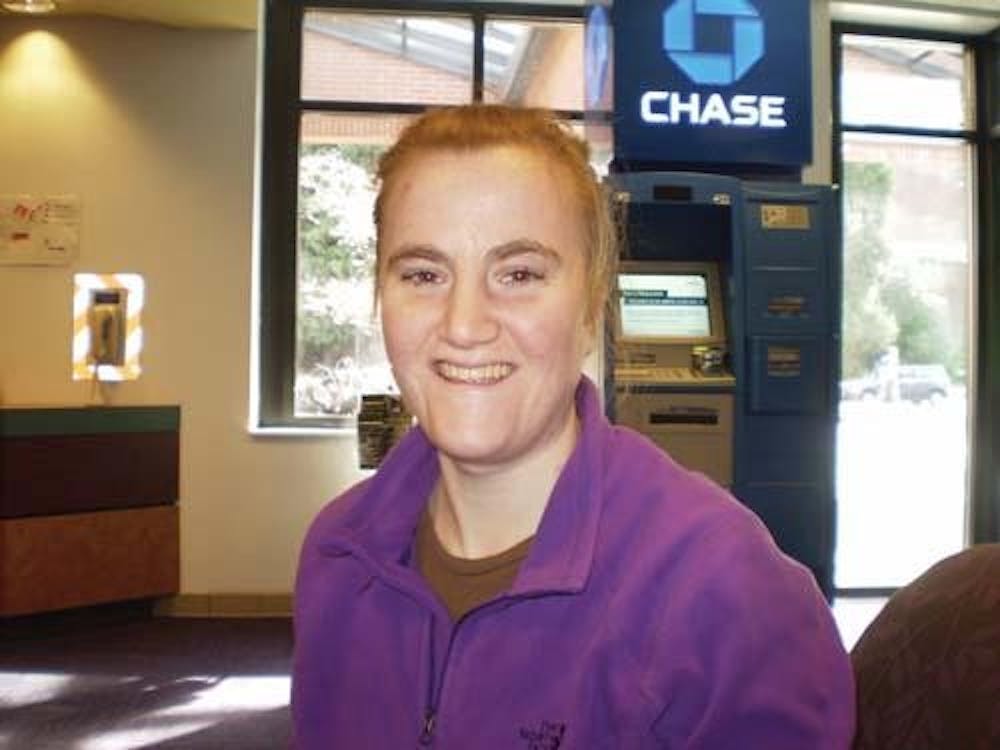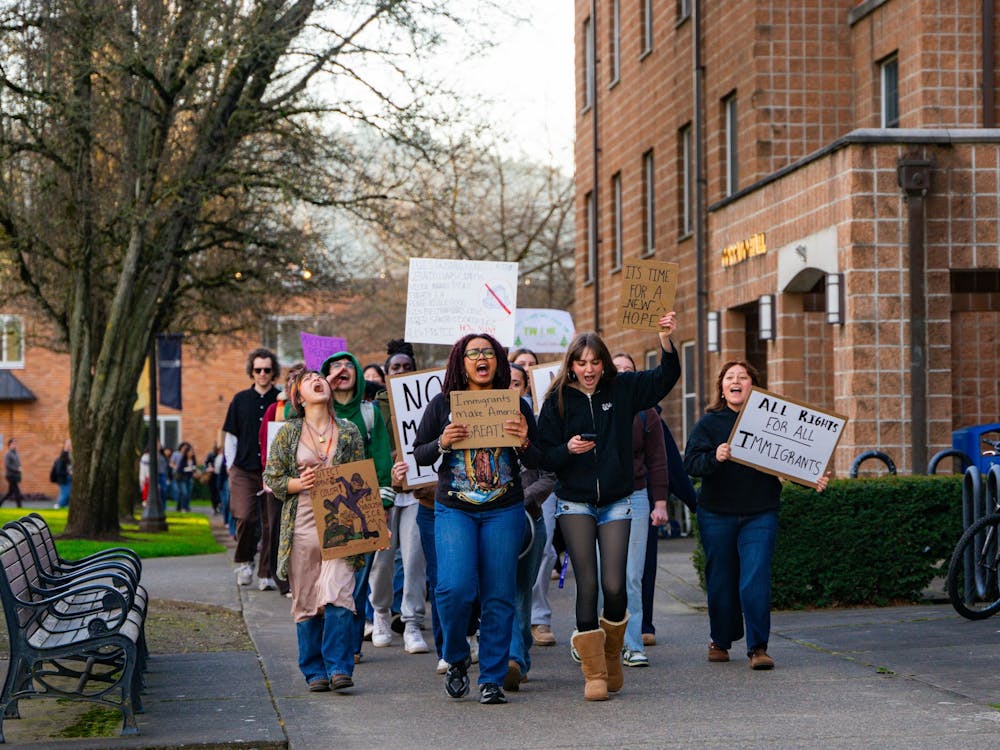Sophomore Annie Soisson battles Crohn’s disease, spreads awareness
Annie Soisson (Kayla Wong | The Beacon)
By Kathryn Walters, Staff Writer -- walters14@up.edu
If you asked a typical person what Crohn's disease is, odds are he or she would have no idea.
They would be unaware of the severe pain, fatigue and blood loss it causes for those who suffer from it, such as sophomore Annie Soisson.
"There are a lot of days when I have trouble getting out of bed," Soisson said. "People think because it's not something you see on the outside, it's not bad. It's much more than meets the eye."
Soisson is looking to change this perception and raise awareness on the UP campus. She works with Team Challenge, an organization with a chapter in Portland that fundraises for the Crohn's and Colitis Foundation of America (CCFA). The CCFA's mission is to find a cure for Crohn's disease and ulcerative colitis, which is a similar disease.
According to Soisson, who is devoted to helping through Team Challenge, the organization offers many opportunities for people to become involved with its cause. Sufferers of Crohn's disease and ulcerative colitis and family and friends can participate by fundraising and training for a half-marathon, which will be held in Napa Valley, Calif. in July.
"I've shared my story on the CCFA website, and when we hold information meetings for Team Challenge, so they can put a face on what is going on," Soisson said.
Although she will not be personally training for the half marathon, Soisson acts as a support for the team. She hopes to motivate students to get involved through donations or even participating in the half-marathon and will spread the news through posters and flyers on campus, as well as through Facebook.
"It would be encouraging and inspiring to me to have people in my school donate or walking in the marathon," Soisson said.
Soisson hopes to educate students about the disease that affects her daily life.
"One of the biggest things is how unpredictable it is," Soisson said. "One day it's okay and one day the pain is just horrible."
Crohn's disease affects the digestive tract, causing chronic inflammation, ulcers and the inability to absorb nutrients from food.
"A lot of people think of a serious disease as cancer that can be life-threatening," Soisson said. "People don't know about Crohn's, and it is real and does affect a lot of people."
According to the CCFA, 1.4 million Americans suffer from either Crohn's disease or ulcerative colitis.
Luckily, Soisson has found solidarity in these numbers. She and her parents found a support group in Portland through CCFA.
It took two years for doctors to diagnose Soisson with Crohn's disease. Initially, they thought her gallbladder was the source of the problem and removed it, but her symptoms persisted. Finally, Soisson found a doctor that could help her.
"It took a long time because both of these diseases (Crohn's disease and ulcerative colitis) can mimic others," Soisson said. "It wasn't until I found a doctor last year that listened and was caring and went through a lot of the tests that I had done."
John Soisson, Annie's father, was thankful to finally have an answer, as then they could get focused medical help.
"As a dad, you want to make it better, and you can't do that," he said. "You feel helpless."
Brett Farrell, team manager of Team Challenge Portland, sympathizes with Soisson's struggle to get a diagnosis.
"One of the things that gets my heart is that it took so long for her to get diagnosed," Farrell said. "And we want to improve on that by increasing research and raise awareness."
Like his daughter, John has found solace in a support group for parents with children who suffer from Crohn's disease, as well as people with Crohn's disease.
"They find ways to get on with their lives," John said. "It's courageous. You really have to admire these folks."
Although Soisson is determined to fight the disease, she accepts that Crohn's is part of her everyday life.
"The biggest thing is being able to accept that it's lifelong and there's no cure and will never go away," she said. "You have to accept that it's part of you."
Despite her difficulties, John said his daughter has a drive to overcome her obstacles in life.
"She was as tough as nails," John said. "I remember when she was four, we took her to a soccer clinic, and she ran all over the boys. She was not to be defeated."








